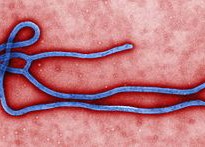
Mutations in two genes called BRCA1 and BRCA2 greatly increase the risk of breast and ovarian cancer. Last year I wrote about Angelina Jolie’s discovery that she carries a harmful BRCA1 mutation and her decision to have preventive double mastectomy.
In the general population mutations in these genes are quite rare, but among Ashkenazi Jews these mutations are much more prevalent. One in 40 Ashkenazi Jews carries a mutation in BRCA1 or BRCA2. In the Ashkenazi population one in 9 cases of breast cancer and 2 in 5 cases of ovarian cancer involve mutations in a BRCA gene.
Identifying women with BRCA mutations who are at high risk of breast and ovarian cancer isn’t just an exercise in predicting trouble. Preventive action can be taken. As Angelina Jolie’s story teaches us, preventive surgery that removes the breasts and ovaries greatly decreases the risk. Mastectomy, of course, is difficult physically and psychologically. For some women at very high risk, intensive screening with mammograms and breast MRI offers some level of protection without resorting to surgery.
Thus far genetic testing for these mutations has only been recommended for Ashkenazi women with a strong family history of breast or ovarian cancer. That’s because BRCA mutation carriers with a family history of breast or ovarian cancer were the only group studied and found to have increased cancer risk.
But if the BRCA mutations themselves cause breast and ovarian cancer, why should family history matter? Why not test everyone who might have these mutations? The answer is that the risk of cancer in BRCA mutation carriers without a family history of cancer has never been measured. Without knowing that, it is possible that the mutation carriers who have a family history of cancer have an increased risk because of some other shared genes that have yet to be identified or because of some shared exposure to cancer-causing agents in the environment. That is, without knowing the risk of BRCA mutation carriers who do not have a family history of cancer, we can’t be sure if the BRCA mutations are the cause of increased risk, or simply a marker for some other cause that is yet unknown.
A study carried out in Israel and published this month in the Proceedings of the National Academy of Sciences sought to answer this question in an ingenious way. The study enrolled about 8,000 Israeli Ashkenazi men without a history of cancer and tested them for BRCA mutations. 175 of them were found to carry harmful BRCA mutations. The first degree female relatives of these 175 men (their mothers, sisters and daughters) were invited to undergo BRCA testing. This identified 211 female BRCA mutation carriers, many of whom had no family history of breast cancer. By studying the medical histories of the identified female mutation carriers, their risk of ovarian and breast cancer was calculated.
The results showed that a woman with a BRCA1 mutation has an 83% risk of developing breast or ovarian cancer by age 80. BRCA2 mutation carriers have a 76% risk of breast or ovarian cancer by age 80. These numbers are very similar to those from studies that only counted women with strong family histories of cancer. That means that a family history is not necessary to identify women who benefit from screening, and suggests that all Ashkenazi Jewish women should be tested for BRCA mutations.
National groups that evaluate scientific data and make testing recommendations like the American Cancer Society and the US Preventive Services Task Force haven’t had a chance to digest the news yet. They still recommend BRCA testing only for women with strong family histories of breast and ovarian cancer.
A medical geneticist I spoke with said that BRCA testing costs about $400 and is generally not covered by insurance. If you’d like to pursue testing, the first step is asking your doctor to refer you to a medical geneticist for pre-testing counseling.
Population screening for specific genetic diseases, like Tay-Sachs, has proven in the past to make enormous reductions in the societal burden of disease. Screening all Ashkenazi Jewish women for BRCA holds out the promise of similar gains against breast and ovarian cancer.
Learn more:
Study of Jewish Women Shows Link to Cancer Without Family History (New York Times)
Israeli research team: Screen all Ashkenazi-Jewish women for BRCA mutations (The Jerusalem Post)
Population-based screening for breast and ovarian cancer risk due to BRCA1 and BRCA2 (Proceedings of the National Academy of Sciences, abstract free, full article by subscription)
Understanding Angelina (My post from 2013 explaining the BRCA testing recommendations at that time)

